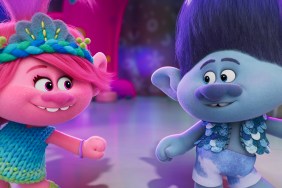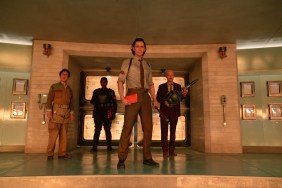
An email came in to the RopeofSilicon mailbox today; one that I feel is worth discussing. The email is from a guy who refers to himself as ‘Justin’ (I only mention this so that he knows, clearly you probably don’t know him) and even though I consider it wrong on many counts I will cede that it is well written and clearly thought out, and I wish more like this would actually come in as opposed to all of the emails asking for celebrity addresses and phone numbers. On top of that, plenty of people write in unintelligible missives to us (which we use for laughs at staff meetings) but rare is the instance that we get something worth responding to. This however, is that time. Let’s take Justin’s email line by line, and I promise to be fair.
If I may, I would like to address the review penned by Mr. Legel in regards to his review of “Ratatouille”, mostly pertaining to his scathing indictment of the film’s monologue towards the end of the movie.
Okay, we’re off to a good start. He calls me Mr. Legel, which is very polite, and he nails that I was scathing. My last paragraph was scathing, it was meant to be, so it’s good that Justin is taking issue with a factual thing as opposed to something he made up in his head. He continues with the exact quote from the movie that I was referring to:
The monologue from the film reads in part as follows: “In many ways, the work of a critic is easy. We risk very little yet enjoy a position over those who offer up their work and their selves to our judgment. We thrive on negative criticism, which is fun to write and to read. But the bitter truth we critics must face is that, in the grand scheme of things, the average piece of junk is more meaningful than our criticism designating it so. But there are times when a critic truly risks something, and that is in the discovery and defense of the new. Last night, I experienced something new, an extraordinary meal from a singularly unexpected source…”
Whoa. First off, how did you get the exact quote? You either have an exceptional memory, have seen it eight times, bootleg illegal DVDs, or work for Pixar. But it doesn’t matter how you got the quote, I’m going to take your word that it’s correct because I condensed it down to “No criticism has ever mattered as much as the worst art.â€
Keep in mind my version versus the official version because here’s exactly where Justin and I start taking different paths in the forest.
Far from dismissing the work of critics, it gives perspective to it. The “worth less than junk” line refers to the effect criticism has on the public’s willingness to adhere to it. In other words, a public, conditioned to accept junk will continue to accept it regardless of how much critics rightly blast it out of the water. How often have we seen movies that have no substance attract huge numbers in spite of critical success? Often enough to prove the axiom true. Criticism against “critic-proof” movies is essentially a worthless endeavor.
Yowsers. He’s done good work here, but he’s done it by muddling facts. He said one partially true thing, which is that criticizing a crappy film sometimes doesn’t matter (call this the Norbit phenomenon). But he has completely missed the point of the quote so let’s look at all three interpretations again:
My version: No criticism has ever mattered as much as the worst art.
The Official version: The average piece of junk is more meaningful than our criticism designating it so.
Justin’s version: In other words, a public, conditioned to accept junk will continue to accept it regardless of how much critics rightly blast it out of the water.
Um, one of these things is not like the other and in this case it’s Justin’s version. The line in no way refers to anything having to do with the public, the word “meaningful†is used in comparison to “junk†and then “our criticism.†He’s missed the point of the quote even though he seemingly got the exact words right. The official version is quite clear; the average piece of junk is more meaningful than anything we (I) write.
I don’t believe this is so, otherwise I’d never write again. If writing matters less than horrible movies, if criticism is really pointless I’d agree that we should all dance around singing cumbaya. But as it stands terrible movies should be labeled as so, it’s the only way we’ll eventually get better movies. And for the record Ratatouille is not an average piece of junk, it’s a great looking movie that’s fine to take kids to. Pixar would have been fine leaving it at just that.
I guess it all hinges on your interpretation of the word “meaningful.†If you take it to mean “important†than I’d agree, my writing on Ratatouille will never be as important as Ratatouille itself due to dollars and social reach. However, is that a real argument? Is it really even in question that Pixar has more reach than almost every critic? If they feel the need to establish that then I feel bad for them. I’d have been happy to admit they are bigger, brighter, more powerful, and presumably better looking than me. What I will not agree to though is that their work has more meaning than the entire field of criticism. And I feel fair defending all critics, as opposed to just myself, because the quote said “our criticism.” Without criticism there is no art. Everything is the same. Without opinions new ideas don’t get presented. It’s criticism which allows art to evolve. Not everyone can sing. Not everyone can write good dialogue.
But back to J-smooth:
However, when a critic draws attention to something new, something unexpected and refreshing, it serves as a gateway, a bridge, if you like between the film-maker and the audience, increasing the chances that the new and fresh ideas get better exposed in the media. It’s the rare gems that might go completely unnoticed by the public but for the diligence of the film critic. Far from consigning criticism to irrelevance, it elevates it by bringing it into perspective. It’s a shame Mr. Legel couldn’t see this, as it seems plainly obvious to this film-goer, and to lots of film critics who have touched on this element of the film.
You want a “rare gem†that never saw the light of day? How about Reign Over Me, Dave Chappelle’s Block Party, Grizzly Man, Serenity, Winter Passing, and Little Miss Sunshine? All of these received grades of A from me, and all except the last were ignored and forgotten. When it comes time to champion the little guy without a voice no one takes it more seriously than me. Is it a shame I might not have grasped that the media giant Disney Pixar was trying to tell me I should champion new and refreshing ideas? Uh, I guess. That’s kind of like Bill Gates telling me I should donate more to charity but okay, it still might be a fair point. And for the record Ratatouille is actually new and refreshing in terms of its looks, which I called the “best I’ve seen to date.†Justin finishes up with:
As for his other criticisms of the movie, I can say without fail that I have no idea where the reviewer is coming from by offering his own ideal set of rules for the universe the movie inhabits and docking points for the film not living up to them. If he thought the editing was off, or the performances were off, something that points to an actual creative failing, I could understand it better, but as it is, it’s akin to docking points for the choice the director made in which city to use as a backdrop. The only rules that the movie absolutely has to play by are its own. As long as it remains internally consistent (i.e. they don’t suddenly have the human characters understanding rat speak at the half-way point in the film) then all storytelling requirements are satisfied as far as those elements are concerned. How effectively they use the established rules seems more important than the rules chosen to define the film’s universe.
No, no, no, no, no.
Little Man has an internally sufficient logic. Is it then a good movie? Of course not. A movie doesn’t have to play “by its own rules†to succeed, it has to play by my rules to succeed with me. This is a crucial point I try to make again and again with my reviews. I don’t speak for you, and you can feel the polar opposite of how I do about every single movie. That’s your right as a reader and as a human with a brain. You can even make up your own rules too. You can say “Any movie with Nic Cage sucks†and although certain people might disagree with you no one can say you’re “wrong.†It’s all subjective, just as your claim that a movie staying true to its own rules is enough for you. It might be. But if the rules set forth by the movie annoy me I’m never going to conceal that.
My only goal is to recommend who should see this film, and I did here, it’s parents with kids. Other people should not bother because it’s not good enough. I’ve given other animations A grades, Meet the Robinsons and Over the Hedge come to mind. Those are movies I told people they should see regardless of parental obligations. Why? Because they were very good, very innovative, very fresh stories. Ratatouille, in my opinion, is not. I have huge problems with the logic presented because it represents choices that the storytellers made. You don’t get a pass when you make a choice, you open yourself up to questioning. The notion of having a Grandma with a shotgun was odd to me. The site gag of have Remy pull Linguini’s hair was an easy choice, but not a funny one. The “evil†critic was another easy choice, though they did a good job of fleshing him out later (which makes his self hating diatribe all the more pointless). And I stand by my original point on the monologue, it was pointless. Even if Justin’s view of it is accurate it’s still pointless. Did the general public need a lecture on the importance of criticism? I think not. So I guess we agree to disagree, more than 1700 words later.
Regardless, thanks for the email Justin, you made me think and that’s a very good thing indeed. I firmly believe that when someone creates something they’ve got to be open to feedback that isn’t lockstep with what they believe. Hmmm, now what should we call that field? And does anyone else around here think it’s important to question things too?
Sorry Justin, I just couldn’t resist… but thanks again for writing in bud.
Also, if any of you out there want to write in as well PLEASE do so, we love hearing from you and if we can get more emails that are as thought out as Justin’s we would love to do this more often. To contact us simply click here and let us in on your thoughts.










